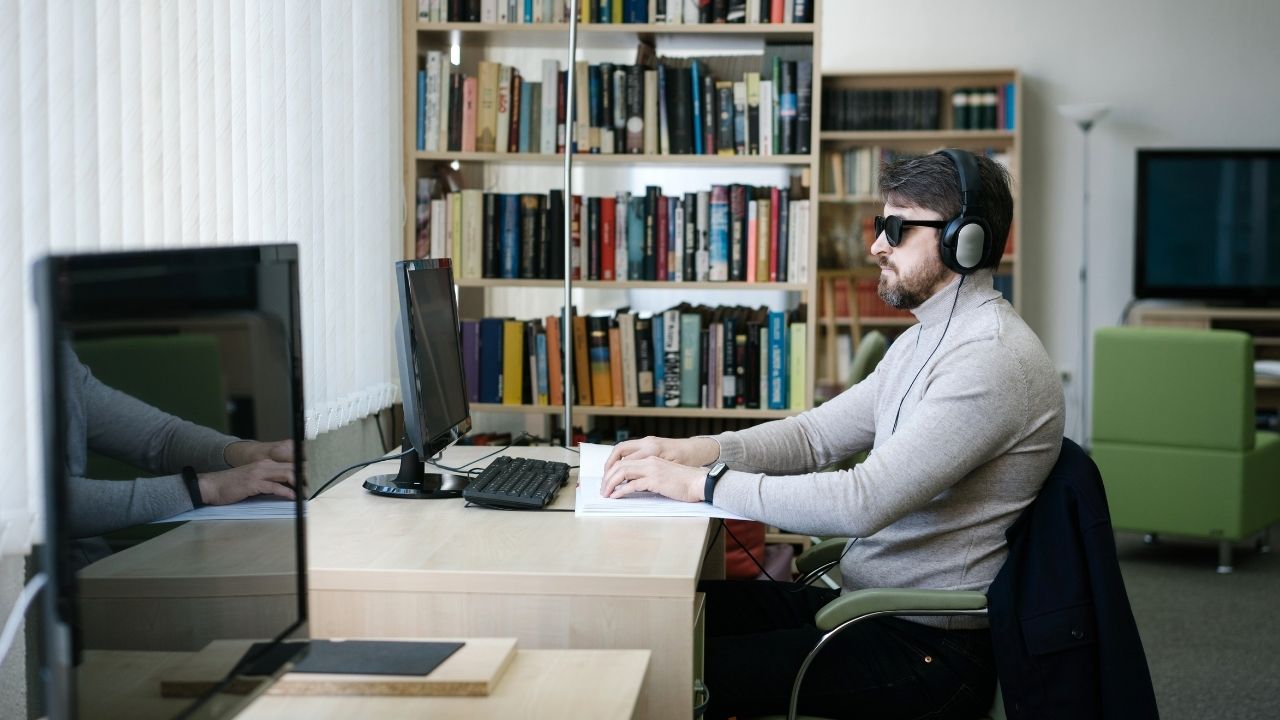
Enhancing study through peer learning has proven to be a powerful tool for academic success. In this article, we will explore eight effective ways to optimize your study experience using peer learning methods.
From reciprocal teaching to peer feedback, these strategies not only foster collaboration and critical thinking but also provide valuable insights and diverse perspectives.
Whether you prefer study partners, discussion groups, or project teams, this article will guide you on your path to achieving academic excellence through the power of peer learning.
Reciprocal Teaching
Reciprocal teaching is a highly effective study strategy that promotes collaborative learning through the exchange of teaching and learning roles among peers. It is a method that encourages students to take on the role of both the teacher and the learner, enhancing their understanding of the subject matter.
One of the key benefits of reciprocal teaching is the importance it places on communication. By actively engaging in discussions with their peers, students are able to clarify their own understanding while also gaining insights from others. This not only helps to deepen their knowledge but also encourages critical thinking and problem-solving skills.
Furthermore, reciprocal teaching fosters student engagement by creating an interactive and dynamic learning environment. Students are actively involved in the learning process, which increases their motivation and interest in the subject matter. They become active participants in their own education, taking ownership of their learning and becoming more invested in their academic success.
Study Partners
Study partners can provide numerous benefits when it comes to enhancing your study experience. By working together, you can engage in effective study techniques such as explaining concepts to each other and quizzing one another.

However, finding compatible study partners is essential to ensure a productive and harmonious study environment.
Benefits of Study Partners
Enhancing study through peer learning is facilitated by the numerous benefits of having study partners. Study partners can greatly contribute to improving retention and boosting motivation. When studying with a partner, individuals have the opportunity to engage in discussions, explain concepts to each other, and ask questions.
This active participation helps to reinforce the material being studied and enhances understanding. Additionally, study partners can provide valuable feedback and offer different perspectives, which can lead to deeper insights and a more comprehensive understanding of the subject matter.
Having a study partner can also increase motivation and accountability, as the presence of another person can create a sense of responsibility to stay focused and committed to the study session. Overall, study partners can be a powerful tool for enhancing the learning experience and achieving academic success.
Effective Study Techniques
One effective technique for optimizing study sessions is by actively engaging with study partners. Collaborating with a study partner can greatly enhance learning outcomes by promoting active participation, knowledge sharing, and mutual accountability.
When studying with a partner, it is important to establish clear goals, set a structured study schedule, and maintain open communication. By discussing and explaining concepts to each other, study partners can reinforce their own understanding and identify any knowledge gaps.
Additionally, study partners can provide valuable feedback, offer alternative perspectives, and challenge each other's thinking, which can deepen comprehension and critical thinking skills. Moreover, working with a study partner can also help alleviate feelings of isolation and increase motivation and engagement.

Finding Compatible Study Partners
When seeking compatible study partners, it is important to consider individuals who share similar academic goals and work ethic. Finding the right study partner can greatly enhance your learning experience and increase your chances of success.
One effective way to find compatible study partners is through study buddy matching programs or platforms. These programs use algorithms to match students based on their academic interests, study habits, and goals.
Additionally, joining or forming effective study groups can also help you find compatible study partners. In these groups, members can collaborate and support each other in achieving their academic objectives.
When selecting study partners, it is crucial to communicate openly about expectations, study schedules, and preferred study methods. By finding compatible study partners, you can create a supportive and motivating environment that will enhance your learning and help you achieve your academic goals.
Discussion Groups
Discussion groups offer a collaborative and interactive learning environment for students to exchange ideas and deepen their understanding of the subject matter. Through collaborative learning, students can engage in meaningful discussions and benefit from the diverse perspectives of their peers.
The Socratic method, a form of inquiry-based learning, can be effectively employed in discussion groups to promote critical thinking and problem-solving skills.
Here are three benefits of participating in discussion groups:

- Enhanced understanding: Engaging in discussions allows students to clarify their doubts and gain a deeper understanding of the topic through active participation and sharing of knowledge.
- Improved communication skills: Discussion groups provide opportunities for students to express their thoughts and opinions, enhancing their communication skills and confidence in expressing ideas.
- Increased retention: By actively participating in discussions and sharing their knowledge, students are more likely to retain the information learned and apply it to real-life situations.
Peer Tutoring
Continuing the exploration of collaborative learning methods, the next powerful way to enhance study is through the practice of peer tutoring.
Peer tutoring involves students teaching and supporting each other, creating a mutually beneficial learning environment.
There are several benefits of peer tutoring. Firstly, it encourages active engagement and participation, as both the tutor and the tutee are actively involved in the learning process.
It also promotes a deeper understanding of the subject matter, as explaining concepts to others requires a thorough understanding of the material.
Additionally, peer tutoring helps to build confidence and social skills, as students learn to communicate and collaborate effectively.
To ensure successful peer tutoring, it is important to establish clear expectations and guidelines, provide training and resources for tutors, and encourage open communication between tutors and tutees.
Regular feedback and reflection are also essential to improve the effectiveness of peer tutoring sessions.

Cooperative Learning
Cooperative learning is a powerful approach that offers numerous benefits to students. By working together in groups, students can enhance their understanding of complex concepts, develop critical thinking skills, and improve their problem-solving abilities.
Effective group dynamics, such as clear communication, active participation, and shared responsibility, play a crucial role in the success of cooperative learning.
Benefits of Collaboration
What are the advantages of collaborating with peers in the learning process?
Collaborative learning, also known as cooperative learning, offers numerous benefits for students in their educational journey. By working together with their peers, students can experience the following advantages:
- Enhanced understanding: Collaborating with peers allows for the exchange of ideas and perspectives, leading to a deeper understanding of the subject matter.
- Improved problem-solving skills: Through teamwork, students can tackle complex problems by pooling their knowledge and skills, fostering critical thinking and creativity.
- Increased social skills: Collaborative learning provides opportunities for students to develop communication, leadership, and teamwork skills, essential for their personal and professional growth.
Engaging in collaborative learning not only enhances academic performance but also prepares students for the challenges they may encounter in their future endeavors. By embracing teamwork, students can achieve greater success in their learning journey while cultivating important skills needed in the real world.
Effective Group Dynamics
Collaborative learning thrives on effective group dynamics, which are crucial for maximizing the benefits of cooperative learning experiences.
Group cohesion is an essential aspect of successful collaboration. When group members feel connected and supported, they are more likely to actively engage in the learning process and contribute their unique perspectives.

To foster group cohesion, it is important to establish clear communication channels, encourage open dialogue, and promote a respectful and inclusive environment.
Conflict resolution is another key component of effective group dynamics. Conflicts are bound to arise when individuals with different backgrounds and ideas come together.
However, by implementing strategies such as active listening, compromise, and mediation, conflicts can be resolved in a constructive manner, leading to enhanced learning outcomes and stronger relationships within the group.
Project Teams
Project teams play a crucial role in enhancing peer learning and promoting collaborative problem-solving among students. By working together in project teams, students can leverage their collective knowledge, skills, and perspectives to tackle complex tasks and projects.
Here are three ways project teams can enhance peer learning:
- Enhanced team dynamics: Working in a team helps students develop important skills such as communication, collaboration, and conflict resolution. These skills are essential for effective teamwork and can be transferred to other areas of life.
- Improved project collaboration: Project teams provide opportunities for students to collaborate and share ideas, insights, and feedback. This collaborative environment fosters creativity, critical thinking, and problem-solving skills.
- Deeper learning through shared experiences: Project teams allow students to learn from each other's experiences, diverse backgrounds, and unique perspectives. This creates a rich learning environment where students can broaden their understanding and develop a deeper appreciation for different viewpoints.
Shared Problem-Solving
Shared problem-solving is a key aspect of peer learning that facilitates collaborative and effective resolution of complex issues. Group problem solving involves bringing together individuals with diverse perspectives and knowledge to collectively brainstorm solutions to a common problem.
This approach encourages active participation and engagement from all members, fostering a sense of ownership and responsibility for the outcome. Collaborative brainstorming allows for the exploration of different ideas, perspectives, and strategies, leading to more innovative and comprehensive solutions.

By working together, students can leverage each other's strengths and expertise, enhancing their problem-solving skills and critical thinking abilities. This method also promotes communication, cooperation, and teamwork, as students learn to listen to and respect each other's ideas.
Peer Feedback
Peer feedback plays a crucial role in enhancing learning through the exchange of constructive criticism and suggestions among students. It allows students to evaluate their peers' work, provide valuable insights, and contribute to their overall growth and improvement. Here are some key benefits of incorporating peer feedback into the learning process:
- Encourages critical thinking: Peer feedback prompts students to critically analyze their peers' work, identify strengths and weaknesses, and provide constructive criticism. This fosters a deeper understanding of the subject matter and encourages students to think critically about their own work as well.
- Enhances communication skills: Through peer evaluation, students learn to effectively communicate their thoughts, ideas, and suggestions in a respectful and constructive manner. This not only improves their communication skills but also promotes a collaborative and supportive learning environment.
- Promotes self-reflection: Peer feedback gives students the opportunity to reflect on their own work by considering the perspectives and suggestions of their peers. This self-reflection helps students identify areas for improvement and encourages them to take ownership of their learning journey.
Incorporating peer feedback into the learning process empowers students to become active participants in their own education. It fosters a collaborative and supportive learning environment, where students can learn from each other's strengths and weaknesses, and collectively strive for excellence.
Frequently Asked Questions
How Can Reciprocal Teaching Be Applied in Online Learning Settings?
Reciprocal teaching can be effectively applied in online learning settings through the use of online platforms and virtual classrooms. This collaborative approach allows students to take turns assuming the role of teacher, promoting active engagement and deeper understanding of the material.
What Are Some Effective Strategies for Finding and Selecting Study Partners?
When it comes to finding and selecting study partners, there are several effective strategies to consider. These include reaching out to classmates, joining study groups, attending study sessions, and utilizing online platforms designed for connecting students.
How Can Discussion Groups Be Structured to Encourage Active Participation From All Members?
To encourage active participation from all members in discussion groups, it is important to consider group dynamics and implement strategies such as assigning roles, setting clear expectations, promoting equal speaking opportunities, and fostering a supportive and inclusive environment.
Are There Any Specific Training or Qualifications Required to Become a Peer Tutor?
To become a peer tutor, specific training or qualifications may be required. These qualifications and training programs can vary depending on the institution or organization offering the peer tutoring program.

How Can Project Teams Effectively Manage Conflicts or Disagreements That May Arise During Collaborative Work?
When managing conflicts or disagreements in project teams, effective communication and collaborative problem-solving are key. Encouraging open dialogue, active listening, and finding mutually beneficial solutions can help resolve conflicts and improve team dynamics.
 Family Craft ProjectsHome ImprovementCooking and BakingReuse and RecycleDIY GiftsEco-Friendly ProjectsDIY Home SolutionsSeasonal ActivitiesFun and GamesLearn TogetherPrivacy PolicyTerms And Conditions
Family Craft ProjectsHome ImprovementCooking and BakingReuse and RecycleDIY GiftsEco-Friendly ProjectsDIY Home SolutionsSeasonal ActivitiesFun and GamesLearn TogetherPrivacy PolicyTerms And Conditions
